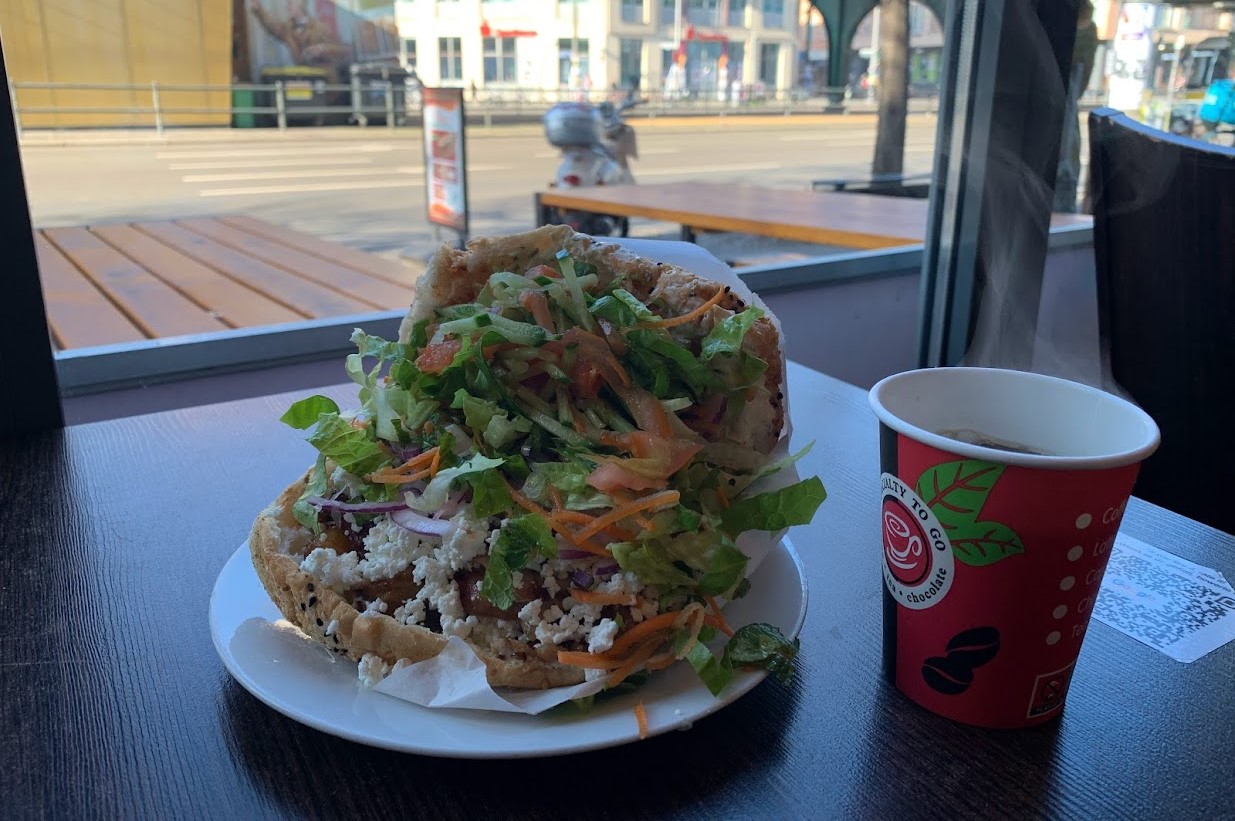This time, I'll be recording my trip to Berlin on February 15th to cover the European Champions Playoff match between Berlin and Zirat Bank Ankara (hereinafter referred to as ZB Ankara).
Berlin attracts huge crowds at home games (approximately 4,000 to 5,000 people), and this season they have Japanese player Ide Satoshi, and also, their opponent ZB Ankara has transferred Yuantorena (Italy) who finished in the Chinese league, so I wanted to see him play, so I decided to go.
Warsaw, where I live, is connected to Berlin by an express train called the Berlin-Warsaw Express.
The journey takes 5 and a half hours, which is longer than taking the Shinkansen from Tokyo to Fukuoka, but plane tickets also take up a fair amount of time due to waiting time and traveling between the airport and the city center, and the price is quite reasonable compared to plane tickets, starting from 3,600 yen one way if you book early, so I chose this option this time.
Another option is to take an express bus, but although the price is not much different from the train, the journey takes around 8 hours, so we do not recommend it.
This time, I took the first train to make it in time to watch the practice session starting at 10:30. I had to get up at 3am (lol).
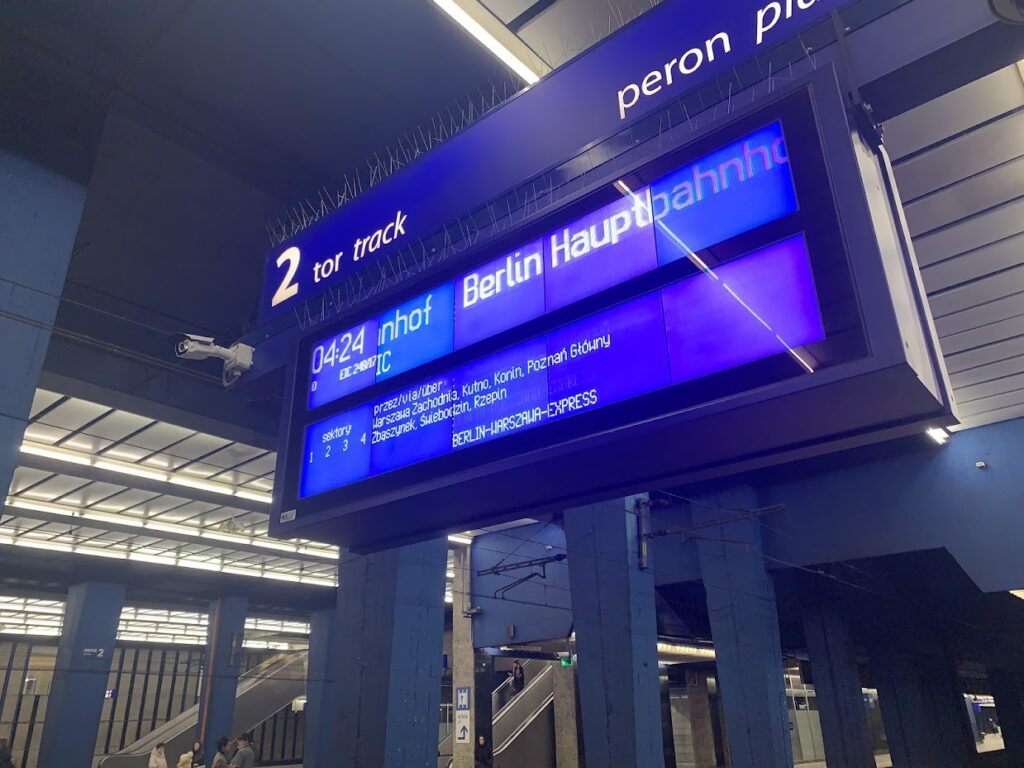
The seats were compartment-style, but there were only two people, including me, in the six-person seat, so I was able to stretch my legs out and sleep.
However, the heating wasn't very effective and it was a bit cold.
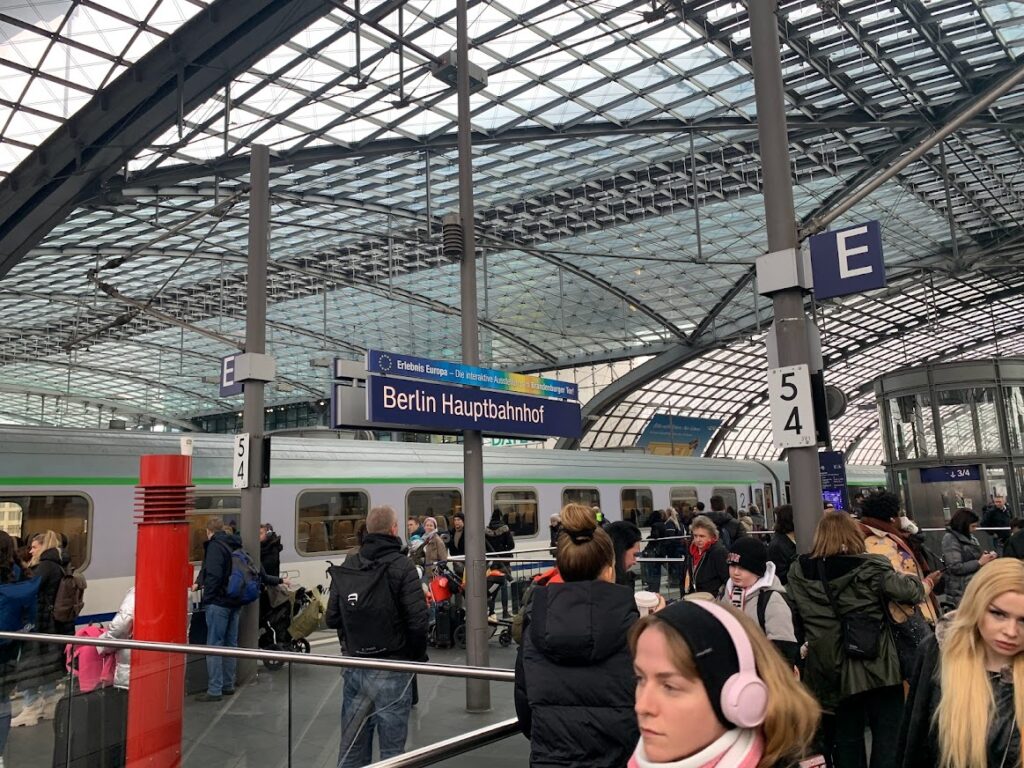
As a result of all this, the train arrived at Berlin Central Station about 20 minutes late.
A delay of this magnitude is to be expected (laughs).
And of course, German is already being spoken all around.
In my first year of university, I chose German as my second foreign language, but now I barely remember a word about myself and I hardly understand any German...
Also, Germany is right next door to Poland, but even at a glance it seemed like there was a greater racial diversity there compared to Poland.
Western Europe is different after all.
It took about 20 minutes by tram from Berlin Central Station to the venue, Max-Schmeling-Halle.
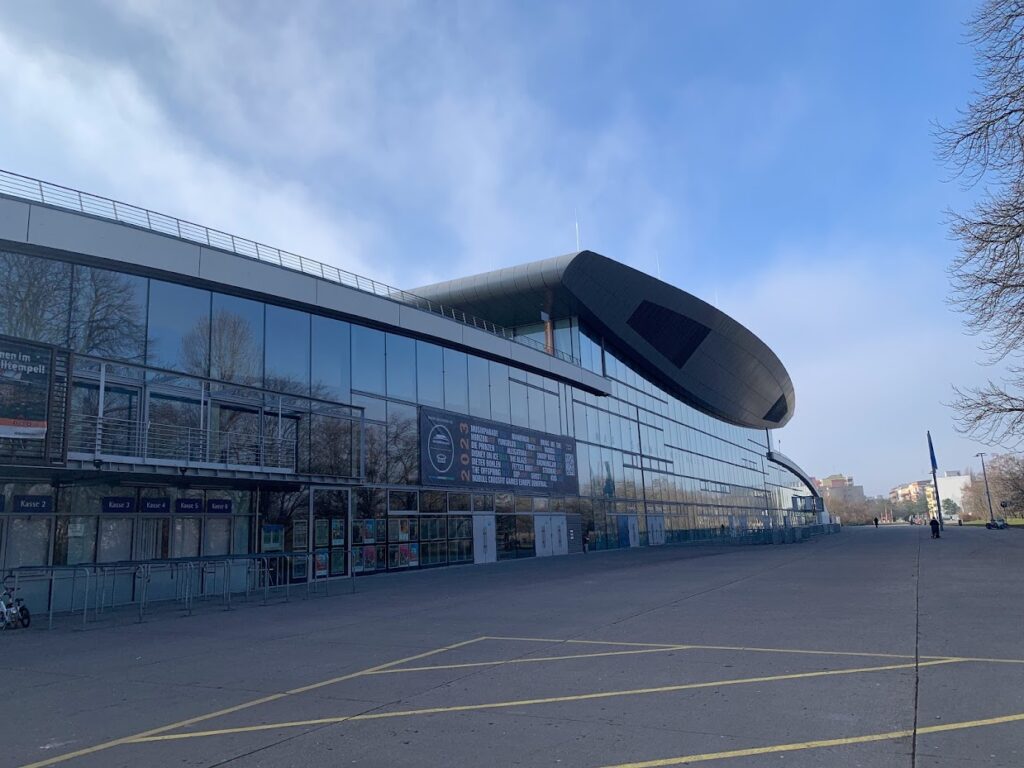
It has a maximum capacity of about 12,000 people, so it looks quite large.
This is my third time here, the first being for the 2015 European Champions League Final and the second for the European qualifiers for the Rio Olympics in 2016 (both times for the men's side, needless to say).
In particular, the third-place match between Germany and Poland in the European qualifiers for the Rio Olympics was one of the three most memorable matches I saw while I was there. Not only was it a significant match - only the winner would advance to the final qualifying round in Japan - but it was also a heated match that went all the way to a full set. The venue was almost completely full, with about half German and half Polish fans, creating an atmosphere that felt like both home and away for both teams, and it was extremely exciting.
When I wanted to watch a practice session, I couldn't find the entrance, so I just randomly asked a security guard who didn't speak English, but with the help of a kindergarten teacher who happened to be passing by with some children, I was able to get in.
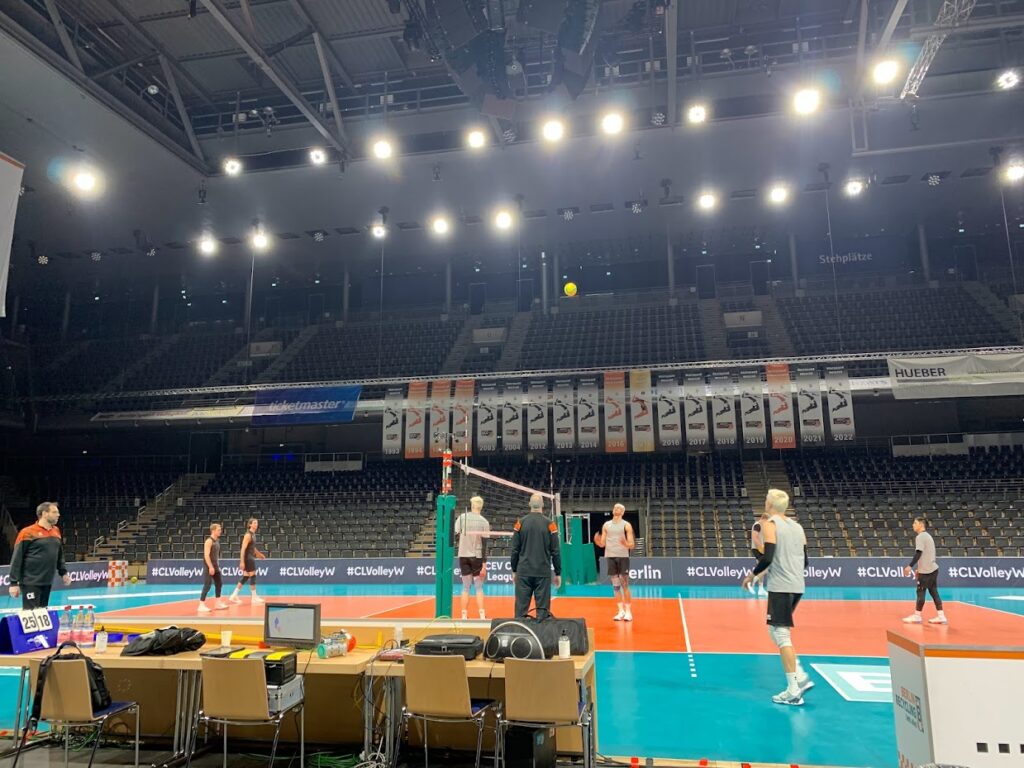
First of all, I was reminded how amazing it is that they play every game at this arena.
I think it's easy to imagine when you consider that V League teams play all their home games at the Tokyo Metropolitan Gymnasium.
It's such a big and impressive arena.
Since it was the day of the match in Berlin, the practice was limited to light warm-ups focusing on serving and serve receiving.
However, it feels strange to see Japanese players at this venue.
Practice ended around 11:30 and the players from our opposing team, ZB Ankara, came in, and of course Yuantorena was among them.
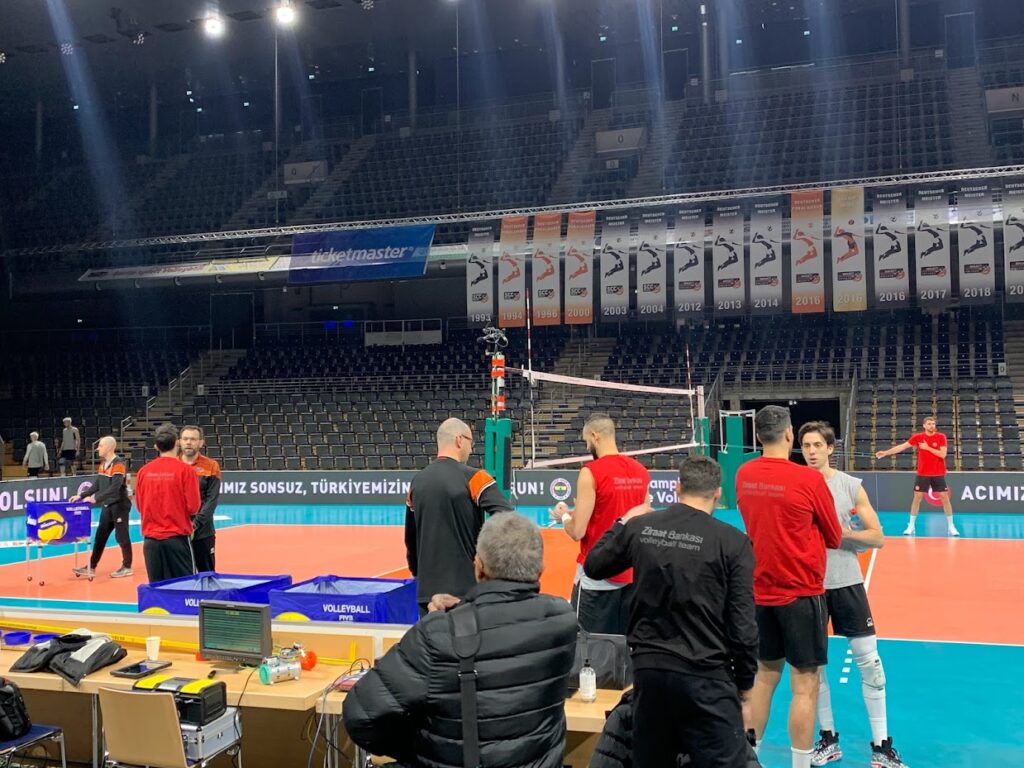
On my way out, I had a brief chat with Ide and then left the venue.
Luckily I was feeling hungry so I went to a kebab restaurant near the venue that had a Google rating of 4.9/5.0.
I love kebabs because they're cheap, contain veggies and are delicious, and German kebabs in particular are of a very high standard.
That's because, although the kebab itself originated in Turkey, it seems that it was Turkish immigrants in Germany who first served it between bread, meaning that Germany is the birthplace of the kebab sandwich.
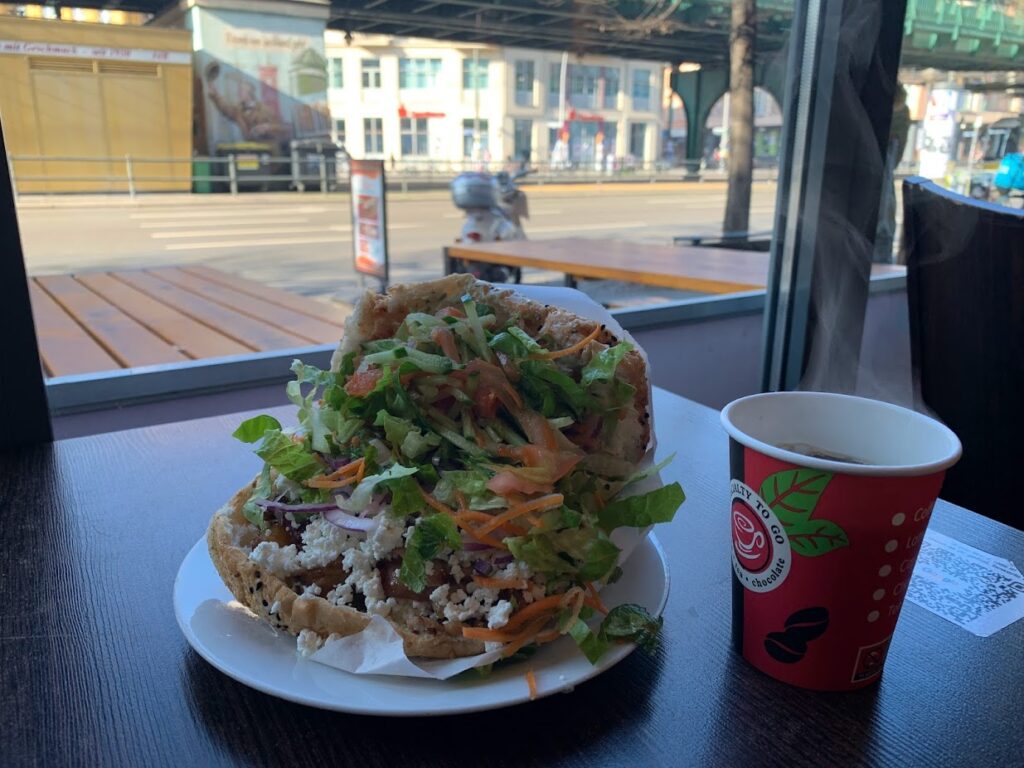
Especially the restaurant I went to this time (Rüyam Gemüse Kebab 2) The kebabs were as filling as they look in the picture, the staff were cheerful and friendly (and of course spoke fluent English), and they provided free hot tea, so it was a restaurant that really deserves a rating of 4.9.
And since the weather was nice, we took a little walk around the area.
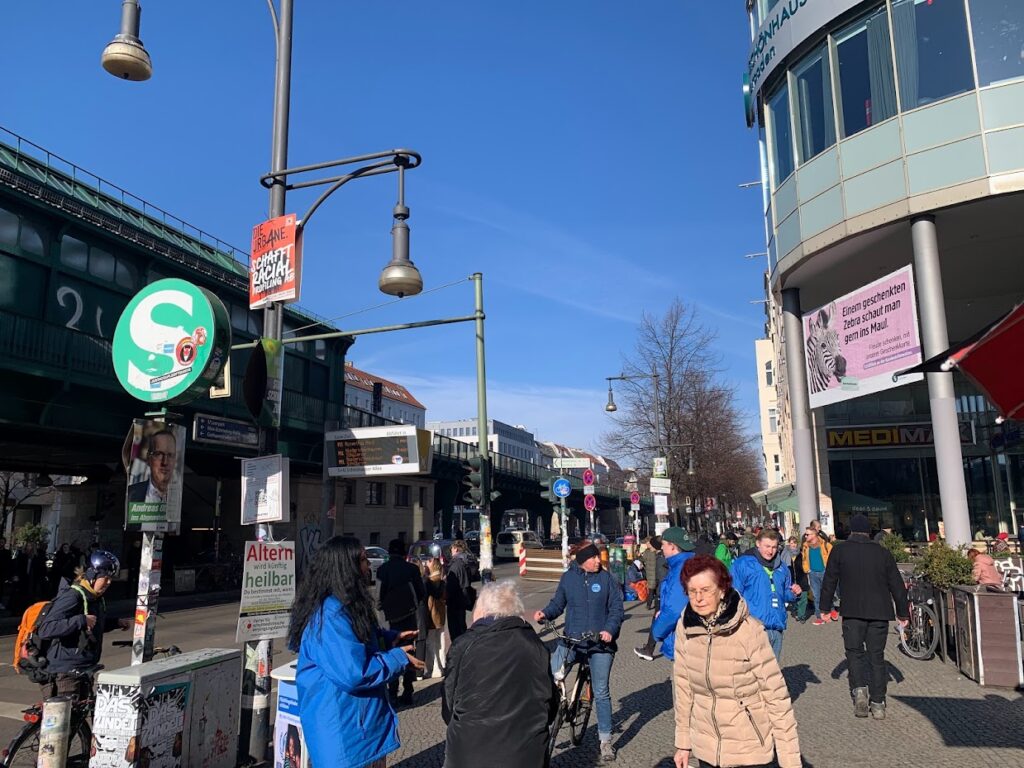
The sight of the train running just above the main street was quite nice.
Of course, most people in Germany don't wear masks either.
When you walk around the city of Berlin, there is quite a lot of graffiti, but it doesn't feel particularly unsafe.
I also saw many people walking around with strollers and dogs.
Every time I come here I think, "I feel like I could live here without any hesitation."
Afterwards, I went to watch a women's UEFA Champions League match at the same venue.
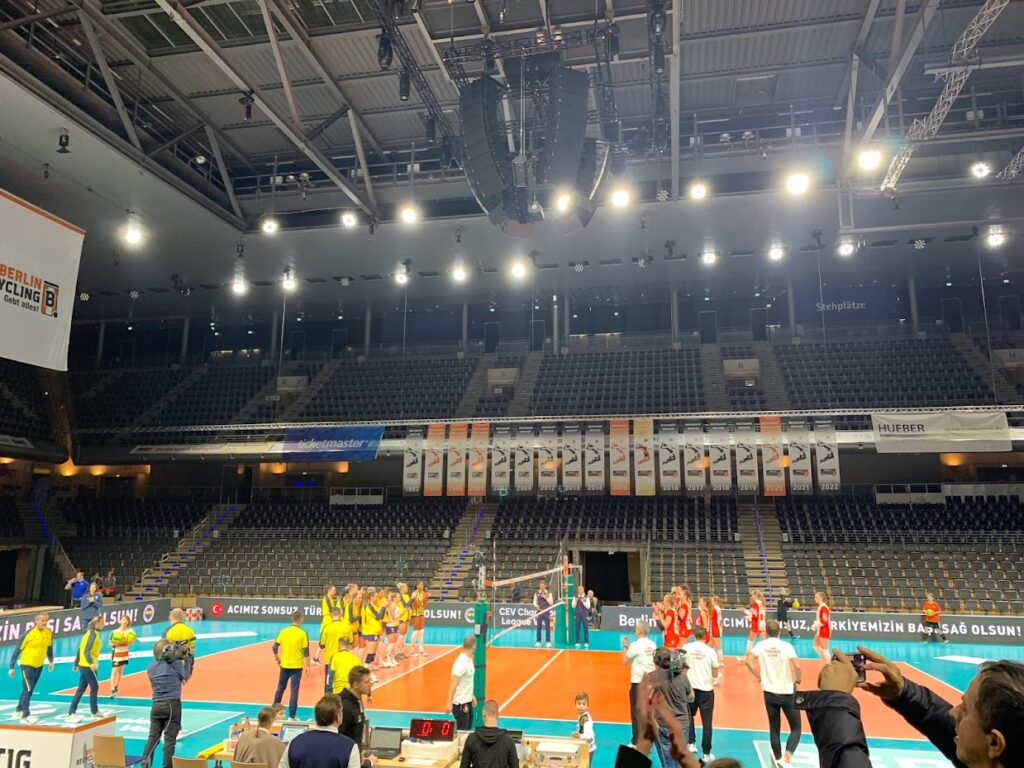
The match was between Fenerbahce Istanbul (Turkey) and Lodz (Poland), and although neither team is German, it was held in a third country, Germany, without spectators, due to the recent devastating earthquake that occurred in Turkey and Syria, which made it difficult to hold the match in Turkey (I was given special permission to enter the venue).
I felt the same thing when I watched a women's Serie A match in Italy last month, but women's volleyball, especially in Europe, is becoming more like men's volleyball, and both teams were very entertaining with a series of powerful plays.
In particular, Fenerbahce's opposite Vargas (Türkiye/Cuba) was impressive, showing power that was on par with that of a man.
Fenerbahce ended up winning the match 3-0.
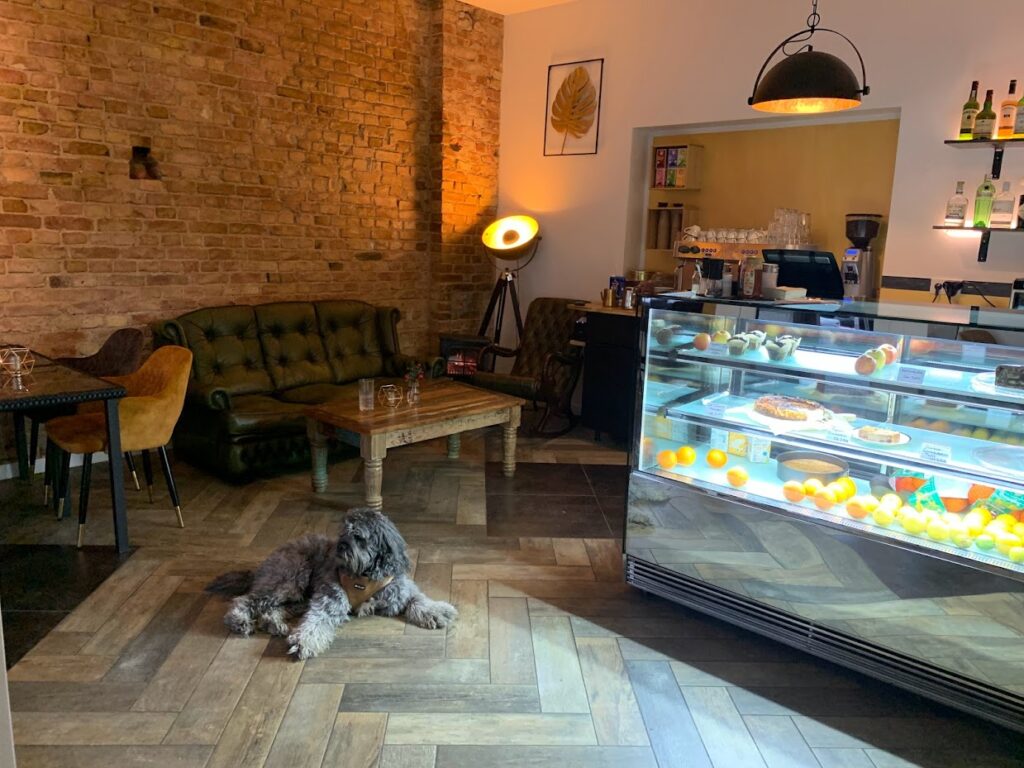
After a short delay, the gates opened for the men's match.
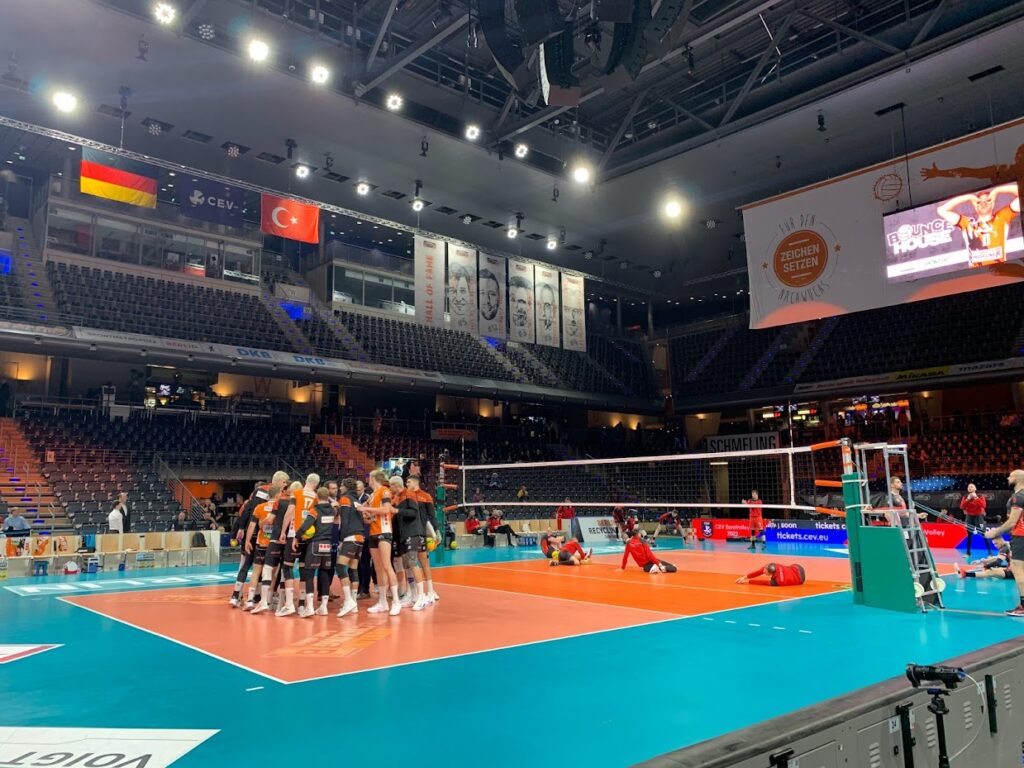
When I arrived an hour before the game started, there were only a few people sitting in the seats, but there were already a lot of people drinking beer around me (lol).
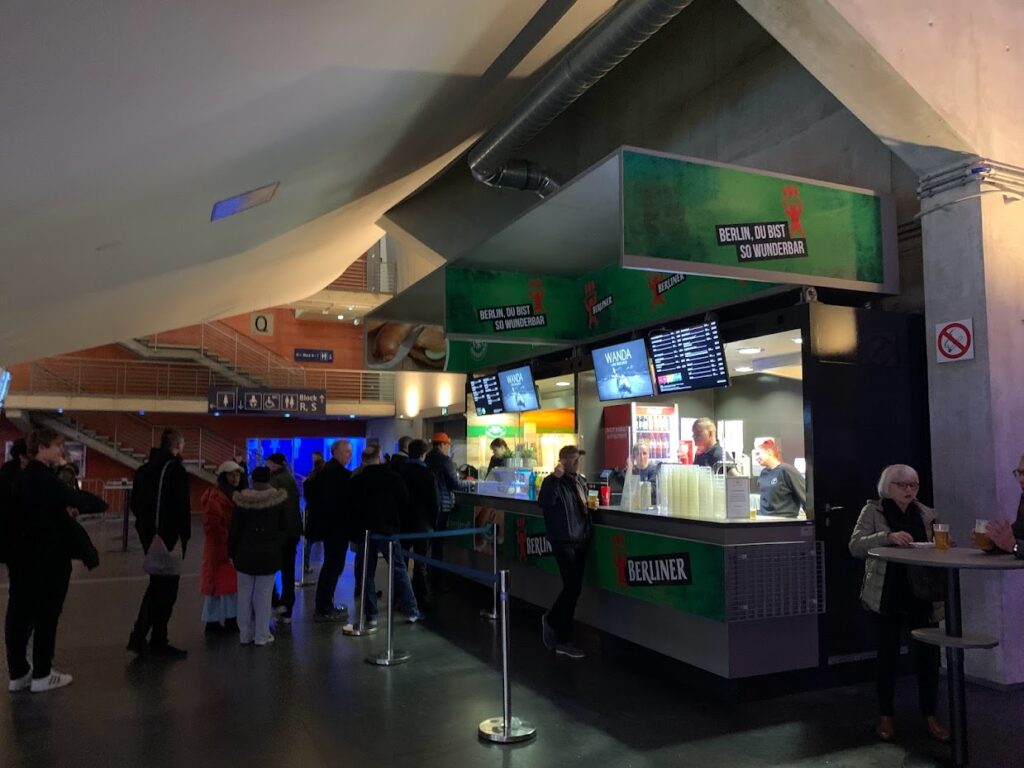
As expected of a German (lol).
The venue also had a lot of concession stands, with about 10 stores like the one in the photo inside the arena, and wherever you went there were lines of people buying beer, french fries, hot dogs, etc.
I don't think you'll find many venues in the world that are as lively and packed with food and drink as this one.
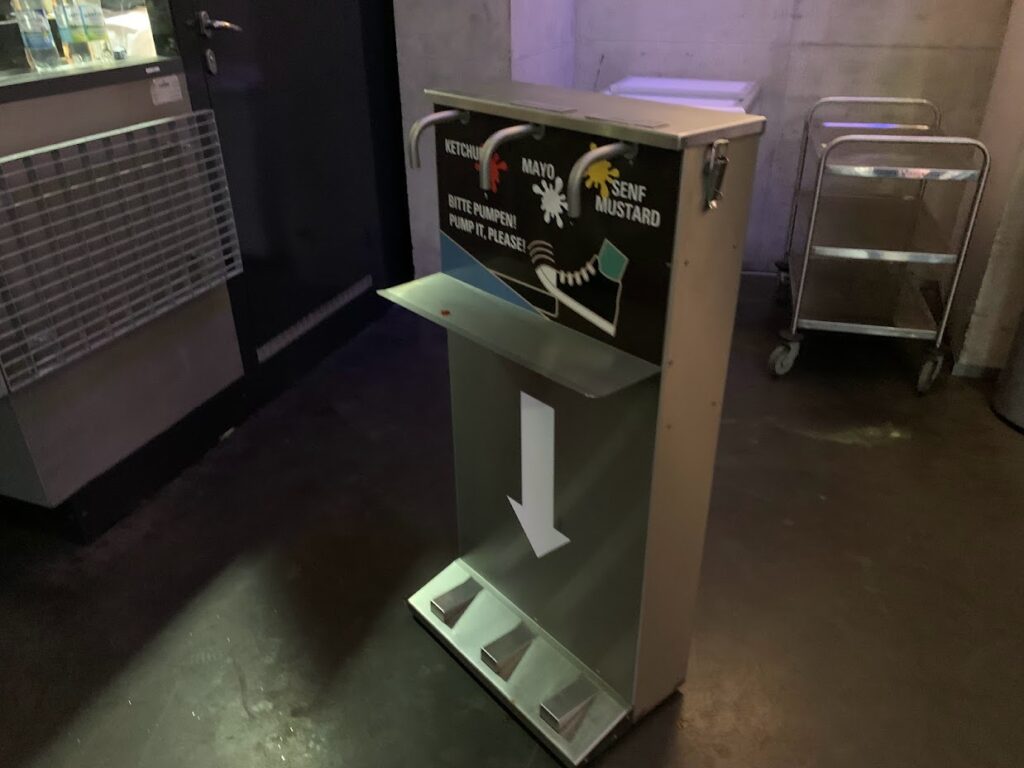
And so spiking practice began.
Ide's spike! pic.twitter.com/xuqydUvEUU
— TOSHIKI | Volleyball x Life Coaching (@toshikit71) February 15, 2023
It was great to get to see the rare spikes from Libero Ide (lol).
The match report and Ide's comments are written in a previous article.
My first impression of the match was that the audience was amazing!
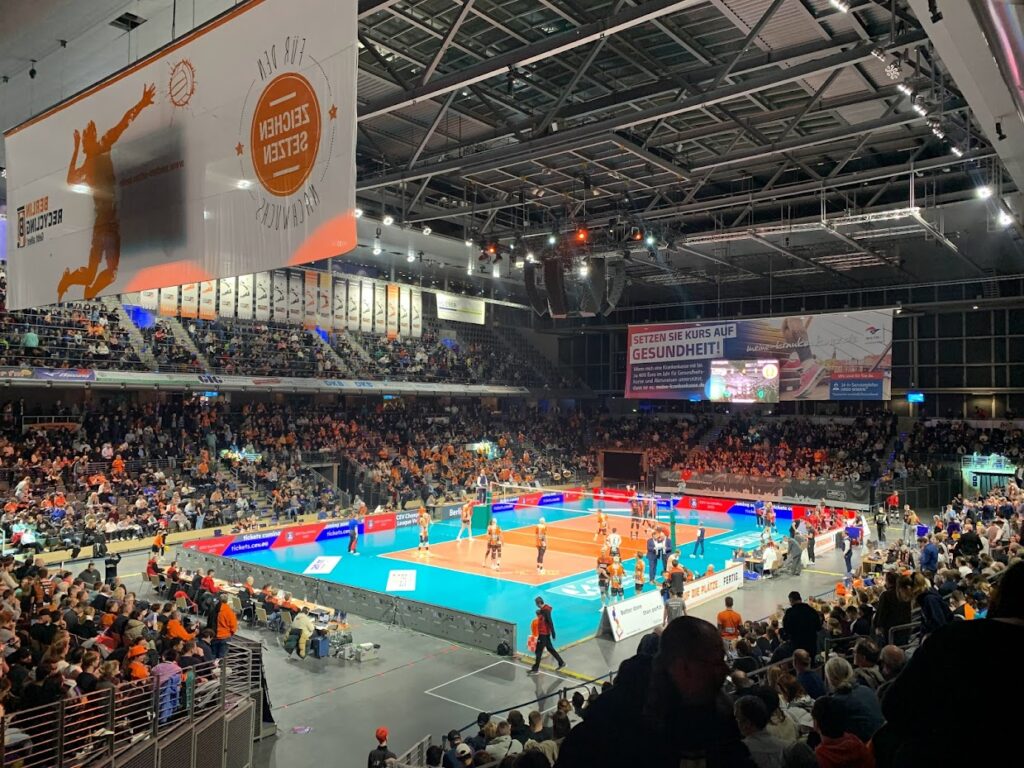
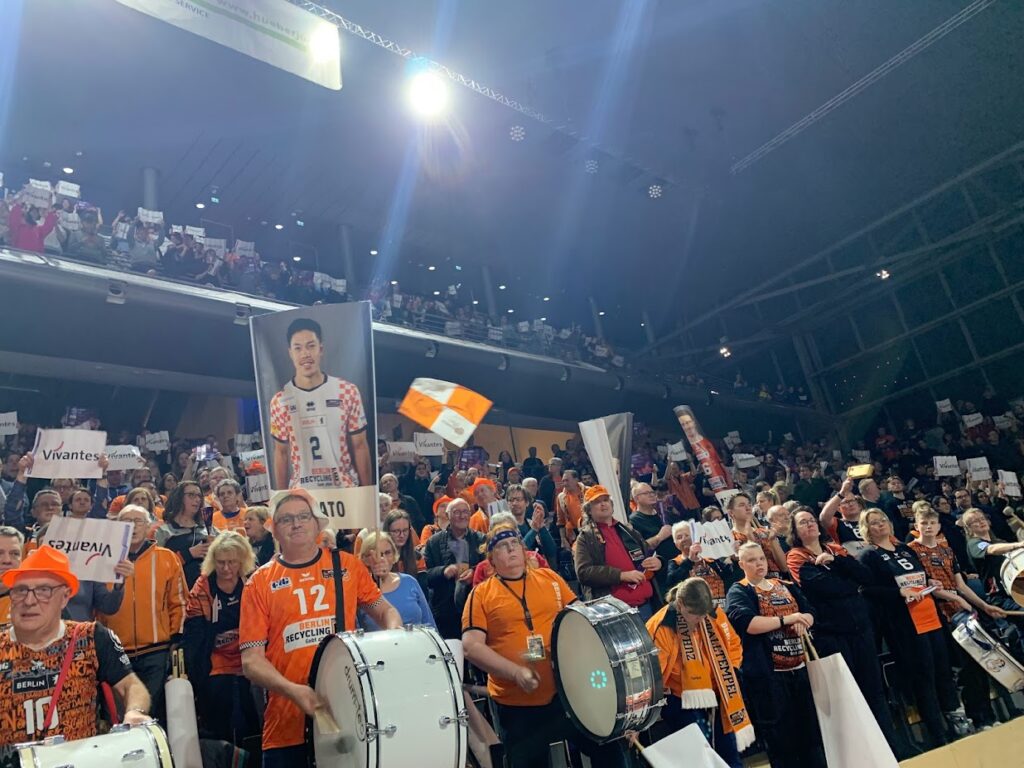
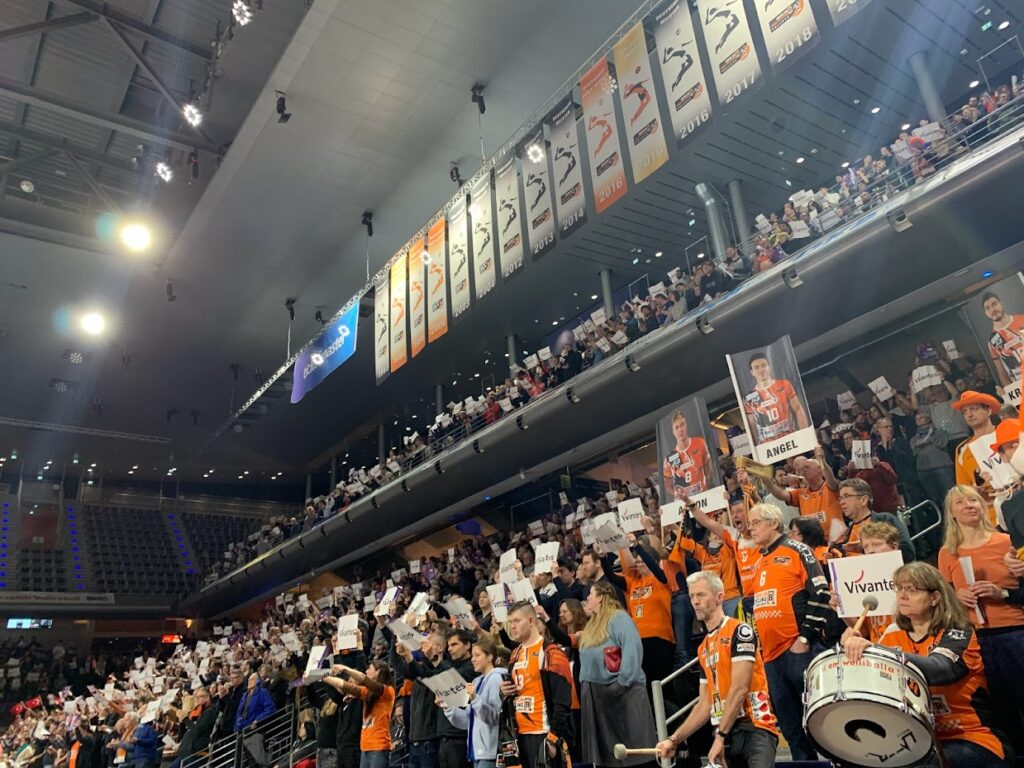
As expected, the upper floors were not that full except for the referee's side, but the lower seats were almost full and it seems that there were actually more than 5,000 people in attendance.
Even in the Italian League, 3,000 people is considered a high attendance these days, but this figure easily exceeds that.
The cheering squad right behind me had a particularly strong presence; the sound of the drums echoed throughout the venue and the whole place started clapping along to it, and every time the Berlin team touched the ball, everyone shouted "Ein! Zwei! Drei! (1! 2! 3!)", and when Berlin made a block, everyone spread out their paper fans and shook together.
There was really a sense of unity in the venue, and it was a fantastic atmosphere that made it feel like this is true sports entertainment.
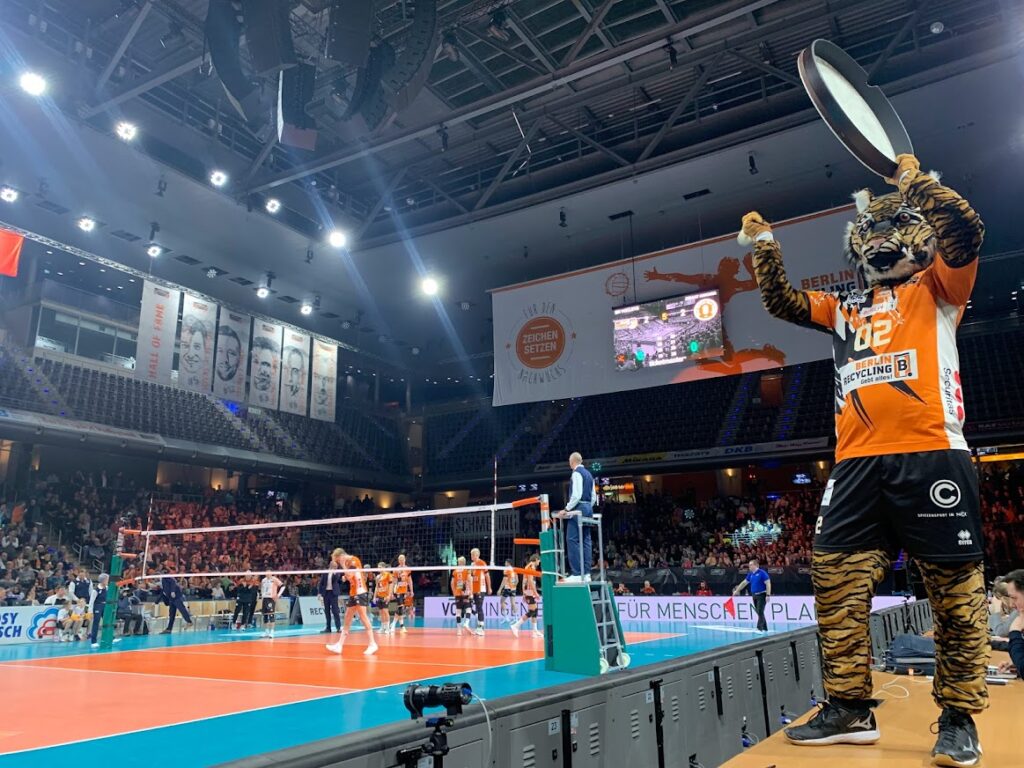
As for the content of the match, we were puzzled by ZB Ankara's dramatic comeback from 21-24 in the first set, but after that setter Tiri played brilliantly.
From the beginning of the second set, they used middle shots as much as they could, and both of them responded with middle shots, scoring one after another.
In particular, mid-range player Brehme, who was named the MVP of the match, scored points not only with quick shots but also with blocks and serves, scoring six points in this set alone.
By using the middle shots frequently, the opposing blockers were forced to focus on mid-range attacks, and then they mixed in the sides and pipes, allowing their attacks to come in one after another, creating the ideal conditions.
We won the second and third sets in a row, and it looked like we could go on to the fourth set, but then we lost five consecutive points on Juan Torena's serve and were turned around in an instant.
As expected from Yuan Traina...
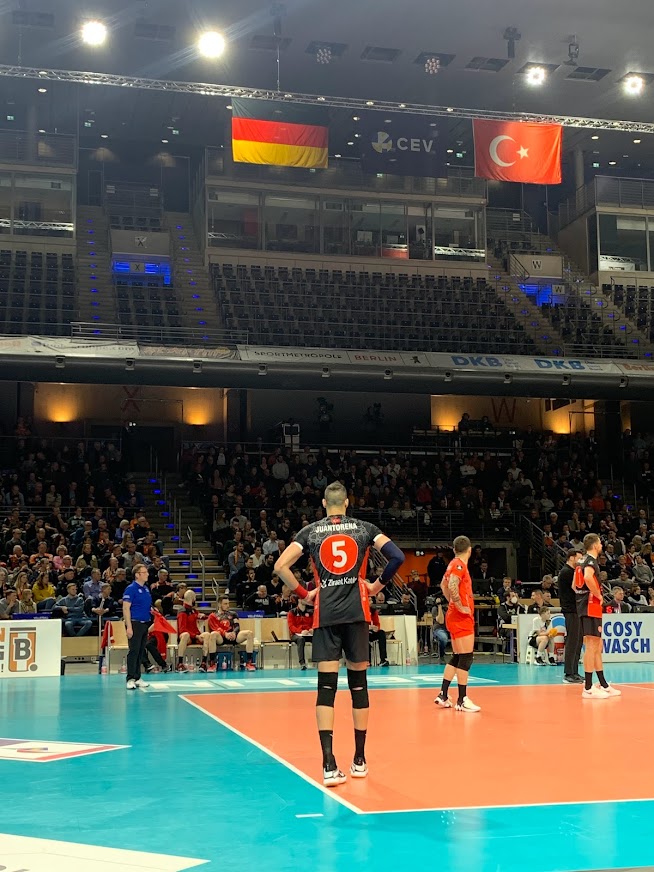
However, in the fifth set, Berlin took the victory thanks to OP Sotra's spiking and serving, as well as some mistakes from the opponent!
It was a long and fierce battle, and the excitement on and off the court was incredible!
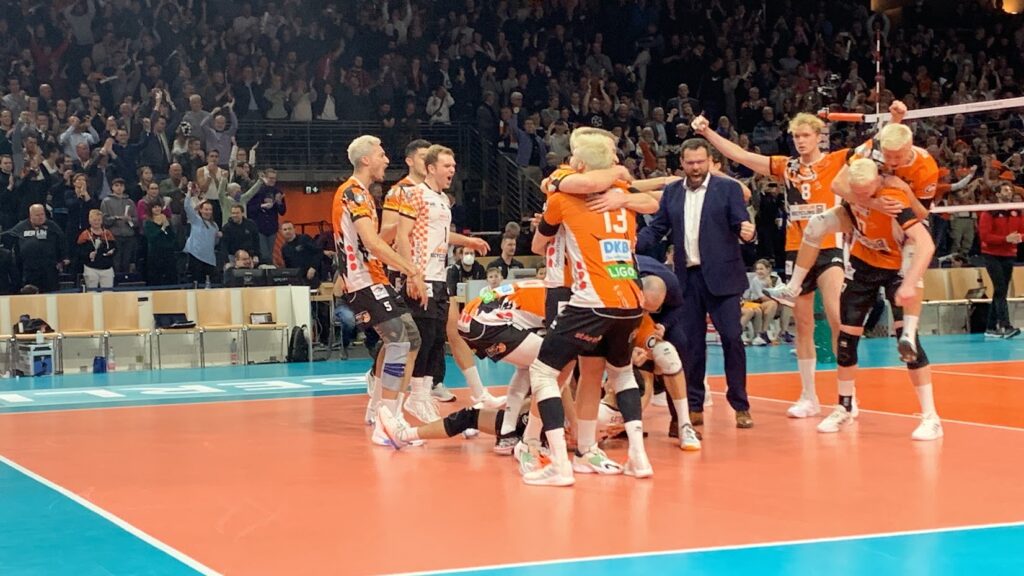
Afterwards, the Berlin players walked around the court and high-fived the fans.
But ZB Ankara was also a really good team.
As expected, Juan Trena's numbers in terms of his spikes, serves, and other aspects of his play were incredible, as was his concentration at crucial moments, and OP Terma (Netherlands) and S. Eksi (Turkey) also showed off their incredibly fast light attacks with an outstanding combination.
It was an attack that was like a completely improved version of WD Nagoya's Tsubakiyama (lol).
Originally, the playoff format was to have the winner decided over two matches in Ankara and Berlin, but due to the earthquake this was changed to a single match in Berlin, so it's impossible to say what would have happened if the playoff had gone ahead as scheduled.
Considering that the domestic league was halted due to the earthquake and they were not able to practice properly, I can only praise the ZB Ankara players.
Thank you very much to both teams for your hard work.
We also interviewed Ide after the match.
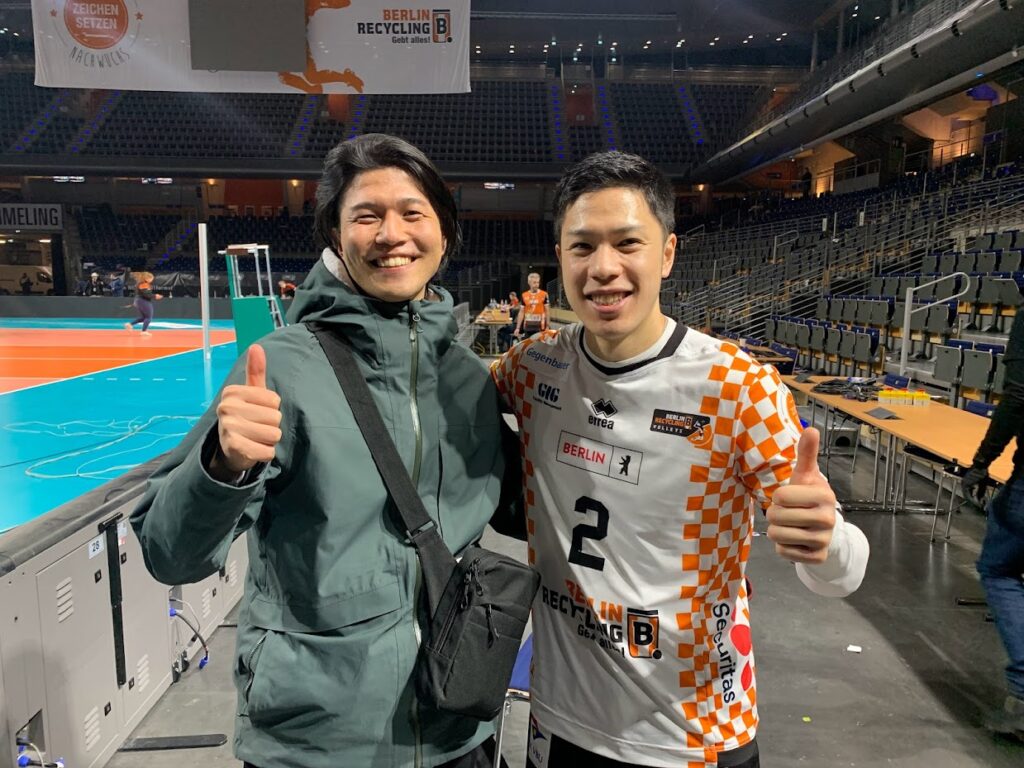
There were quite a few local fans at the venue wearing Ide's uniform, and just before the interview many of them had asked for photos with him, so I was happy to see that he has already become a beloved player in Berlin.
I actually wanted to talk to Yuan Traina as well, but she had already left the court, so I gave up and decided to go home.
However, by chance, Yuan Traina was walking right in front of me as I was leaving the building, so I just asked him to take a photo.
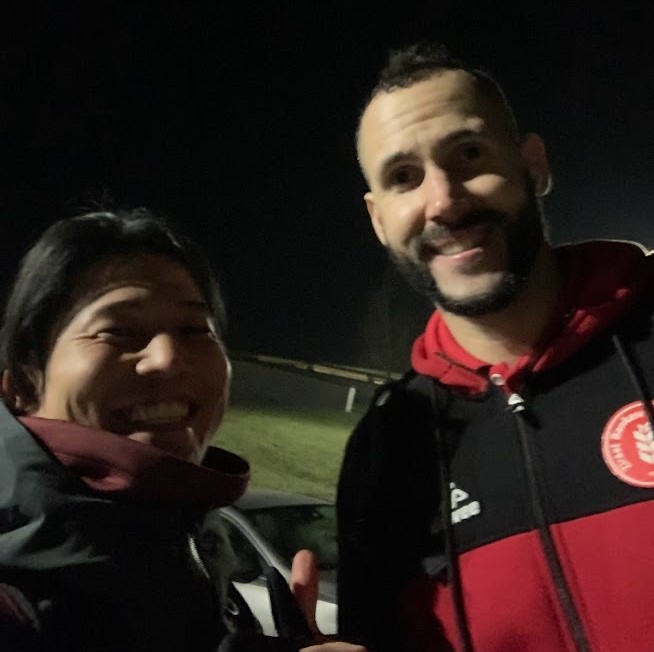
Gratuit!!!
I returned to my lodging that day, and the next day I met up with a friend who lives there before returning to Warsaw.
The return journey took similarly five and a half hours, but strangely enough it felt quicker.
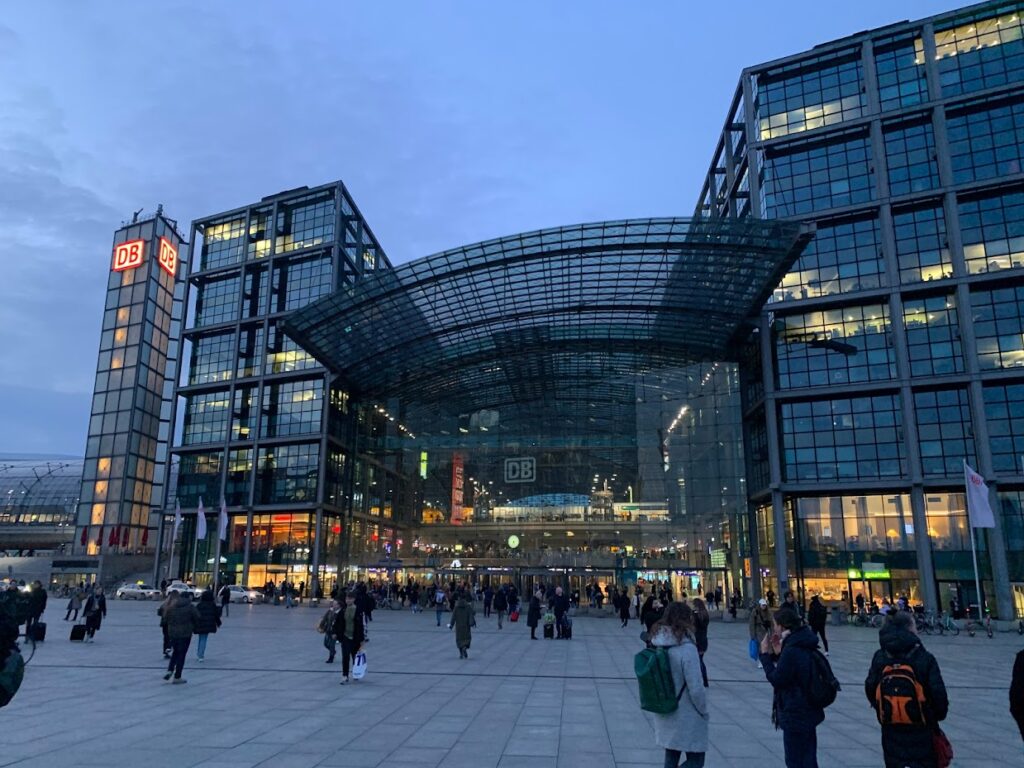
On the way back, I had a Polish soup called ukelek in the dining car of the train, which was so delicious it warmed my every fiber.
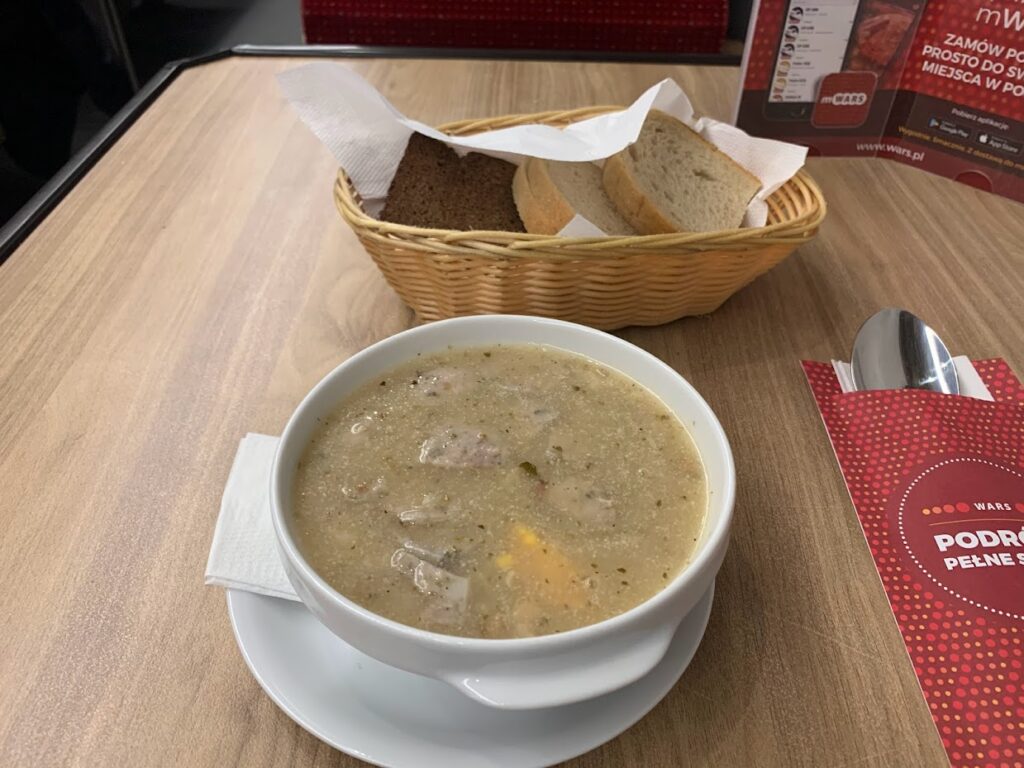
Photo: Author
